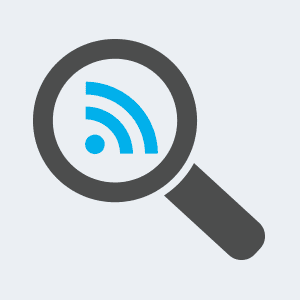There are no products to show
Use the search and filter options in the menu to find products



Use the search and filter options in the menu to find products
| Provider | User Rating | Phone Number |
|---|---|---|

|
|
(858) 947-7562 |

|
|
(858) 947-7560 |

|
|
(858) 947-7563 |

|
|
(205) 946-1154 |
HouseholdsIn Bishop (Oconee County), GA, the aggregate number of households is 14,005 |
Median IncomeHouseholds in the city of Bishop (Oconee County), GA have a median income of $78,541. |
PopulationThe total population in the city of Bishop (Oconee County), GA is 36,187 |
DSL TechnologyApproximately 94.81% of consumers in the city of Bishop (Oconee County), GA have access to DSL internet |
Fiber TechnologyApproximately 1.69% of consumers in the city of Bishop (Oconee County), GA have access to fiber-optic internet. |
Cable TechnologyApproximately 82.16% of consumers in the city of Bishop (Oconee County), GA have access to cable internet. |
Wireless TechnologyApproximately 100% of consumers in the city of Bishop (Oconee County), GA have access to mobile broadband internet. |
Average upload speedFor residents in the city of Bishop, GA, the city-wide average upload speed is 6 Mbps |
Average download speedFor residents in the city of Bishop, GA, the city-wide average download speed is 10 Mbps. |

Modern technology has enabled consumers to have a variety of choices for high-speed internet services providers. Some of the services are cable, DSL, satellite, and fiber optic internet. The wide range of options has increased the level of competition in the market. Therefore, we are seeing a drop in the average prices of providing internet services and an increase in downloading speeds. However, the broad range of options in Bishop, GA, can make it hard for the clients to understand which is better. Many clients get more confused by the fact that many options are available on their own or bundled with television or telephone services.
MyRatePlan compares satellite, cable, and DSL high-speed internet providers. Therefore, we enable clients to find the best deals for high-speed internet connection in Bishop, GA. We allow customers to find the right company that fully suits their needs. Our application can help you to find internet options that can be used with your television or telephone service. All you have to do is enter your ZIP code in the tool above to initiate a search.
MyRatePlan has a section that is dedicated to clients interested in business internet providers. The tool enables you to test your current internet speed by using the MyRatePlan Internet Speed Test. The incredible news is that it does not require Java or Flash extensions and can work on any device.

Most cable companies in Bishop, GA can provide services such as telephone, TV and high-speed Internet through various methods. Some of these methods include the conventional coaxial cables, fiber optic lines, etc. The best way to think about this is the cable companies create a physical link between their nearest service providing location, straight to the customer.
Recently, the use of internet modems has become the primary way to stream your internet service. Internet modems use bandwidth from various TV channels to connect you to the web. Utilizing MyRatePlan's broadband comparison tool is one of the easiest ways to find the best deals on cable internet services for you.
Using web services with a modem uses up a minuscule amount of bandwidth, so bundling TV, the internet, and phone services together is a great, cost-effective way to save money. Fortunately for the consumer, most of the cable companies today offer many bundles of phone, TV and high-speed internet or a comprehensive package deal all three services rolled into one. Internet connections today all use phone and TV connections, so adding the internet to your existing multimedia services is as simple as adding a router or a modem to your setup. The real beauty is your internet speeds won't be affected because you already have a physical connection to your cable company.
Using cable internet in Bishop, GA is very convenient for consumers who don't have to share multimedia service channel with another user. If a user lives in a high traffic area for internet users, you may experience a decline in services. Internet speeds drastically decrease when users are streaming large amount data, such as using a video streaming service like Netflix or online gaming. The Internet speeds drastically slow because hundreds of users are using the same channels are sharing bandwidth. Although bundles seem like a sweet deal to save lots of money on your cable bill, only paying for the service you use most may be the most cost-effective option for you. MyRatePlan has may tools that are at your disposal to ensure you find the best deals available.

What is all the talk about fiber optic Internet about? Fiber optic Internet services, often referred to as “FiOS,” use fiber optic cables to transmit data using light, instead of electricity. On the cutting edge of digital technological advances, fiber optic cables can transmit data at speeds approaching the speed of light with minimal signal loss or weakening across large distances. However, this does not mean that your actual download speeds will approach futuristic light speed levels. Fiber optic cables only ensure strong and reliable connections between traditional electric hubs, and your internet service will likely still be limited by electronic hardware such as your router or Internet service provider. Fiber optic networks are often seen as the most “future proof” internet connection and may provide superior download speeds and ultra-low latency in certain areas of Bishop, GA.

This service isn't nearly as popular as cable, but it comes with its own unique advantages. DSL is short for digital subscriber line, and it's made possible by analog telephone lines. By connecting to an analog phone line, DSL customers can use bandwidth within the phone lines to access the Internet and make telephone calls. Analog telephone lines are known for transferring calls, but they also hold bandwidth that works great for the Internet. For this connection to work, a customer must have a DSL modem, and the modem creates a link between the computer and service provider. A DSLAM is used by the provider to connect the customer to the Internet. MyRatePlan is the easiest way to compare DSL Internet providers in Bishop, GA.
A DSL Internet connection is possible because telephone calls don't require an enormous amount of bandwidth. Since the Internet connection uses extra bandwidth in the phone line, a DSL customer can make phone calls while using the Internet. This isn't possible with a dial-up connection. A major advantage of choosing DSL is the lack of connection sharing. The problem with cable Internet is that it forces users to share a connection, which can slow down the connection for everyone. A DSL connection is different because it doesn't require users to share the connection. The lack of connection sharing can make DSL faster than cable in some areas. However, DSL does come with a disadvantage because the signal degrades over long distances. Due to this problem, DSL customers who live far away from the nearest service station won't get the best signal. Before choosing a DSL connection, it's important to read reviews and compare the different services in your area.

Many residents of Bishop, GA are looking for satellite Internet, and they want to get the best deals available. Satellite Internet uses a satellite dish and doesn't work like cable or DSL. To use this Internet connection, you must have a satellite dish, and it must face towards the equator. A modem is needed to establish a connection between your computer and satellite dish. Once you're paying a service provider, the satellite dish receives a signal that is beamed down from a satellite. The modem translates the data and provides a working Internet connection.
Satellite Internet service isn't terribly popular with residents of Bishop, GA because it's not as fast as cable or DSL. However, it's almost always the best option for people who live in rural, remote areas because it's not cost effective for providers to install physical lines in these areas. Cable and DSL tend to be the best options for most people who don't live in rural areas.